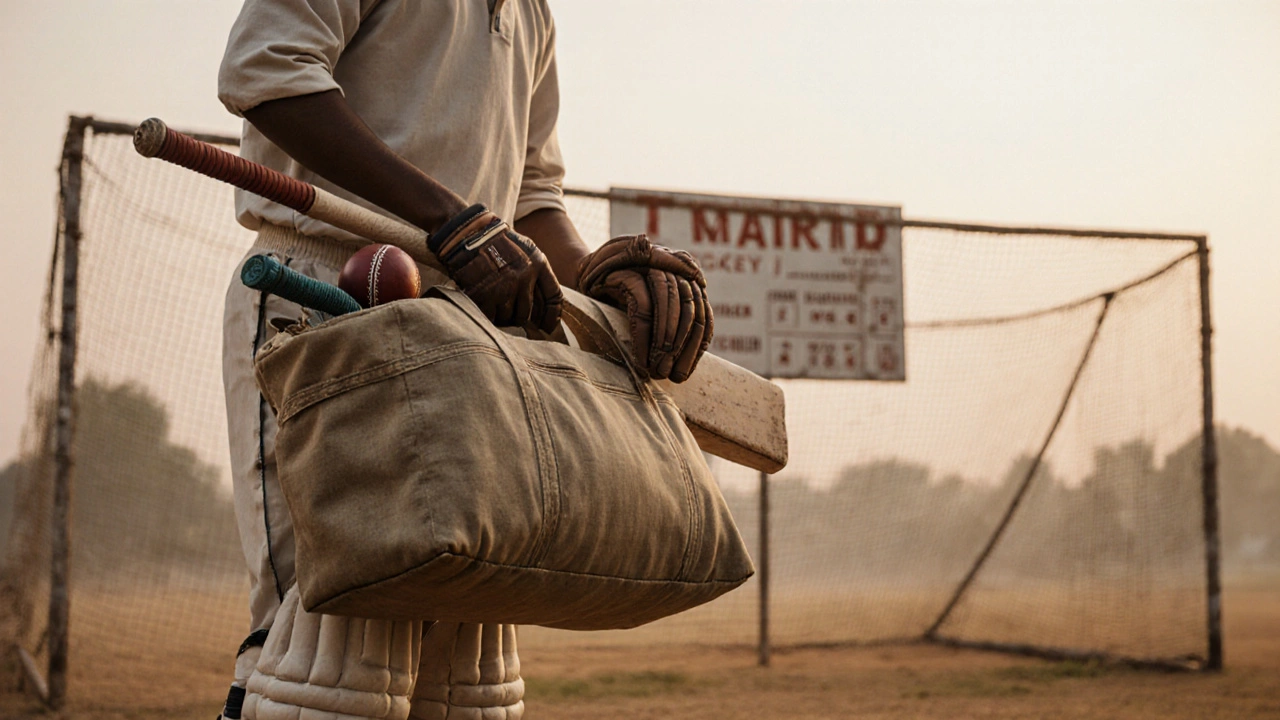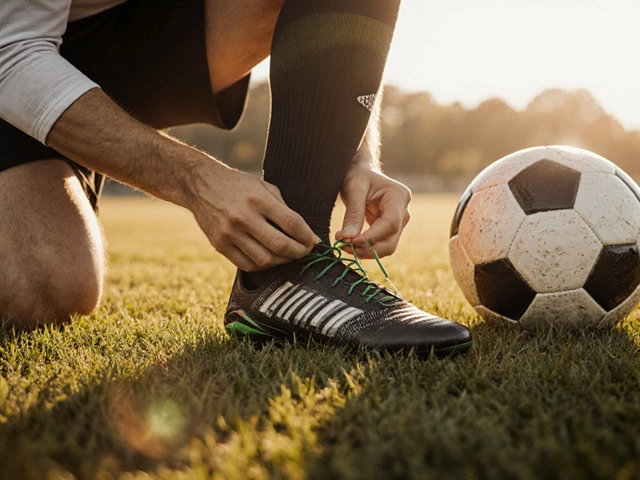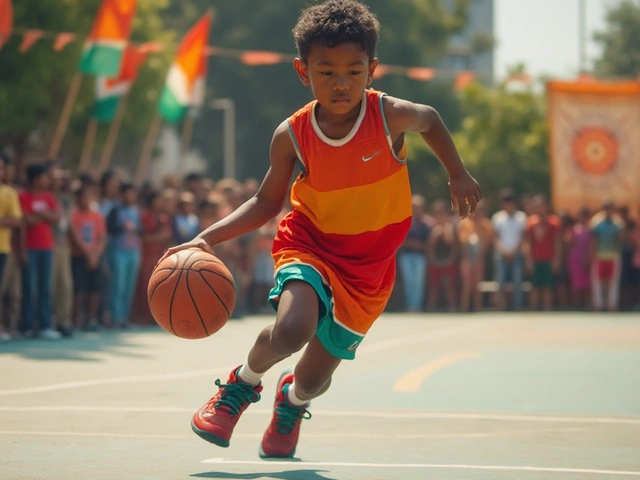Sports Equipment Terminology Quiz
Test your knowledge of when to use different terms for sports gear. This quiz will help you understand the subtle differences between terms like "athletic gear," "sports kit," and "training equipment."
Question 1: Shopping Context
When shopping online for youth soccer equipment, which search term would likely return the most relevant results?
Question 2: Professional Context
When talking to a professional basketball coach about the team's gear, which term would they most likely recognize?
Question 3: Regional Terminology
In India, what term would you most commonly hear for sports equipment in schools and local clubs?
Question 4: Contextual Differences
Which term would most appropriately describe resistance bands used for strength training at home?
Question 5: Product Category
Which of these would be classified as "apparel" rather than "equipment"?
Your Results
Score: 0/5
When people talk about gear for playing sports, they don’t always say sports equipment. You’ve probably heard terms like athletic gear or sports gear thrown around in stores, gyms, or on TV. But are they really the same thing? The short answer: yes, mostly. But the details matter if you’re shopping, researching, or just trying to sound like you know what you’re talking about.
What Exactly Is Sports Equipment?
Sports equipment refers to the physical tools and gear used to play or train for a sport. That includes everything from a simple tennis ball to a full set of hockey pads. It’s not just about the big items-gloves, helmets, shoes, rackets, bats, and even water bottles count. The key is that it’s designed specifically for physical activity, performance, or safety during play.
Think of it this way: if you’re playing basketball, your sneakers, the ball, the jersey, and the wristbands you wear are all part of your sports equipment. If you’re swimming, it’s your goggles, cap, and swimsuit. Even the cones a coach uses for drills count.
Common Alternative Names for Sports Equipment
People use different words depending on context, region, or habit. Here are the most common ones you’ll hear-and what they really mean.
- Athletic gear - This is the most widely used synonym. It’s slightly more casual and often used in retail settings. When you see “Athletic Gear Sale” on a website, it’s just another way of saying “Sports Equipment.” It’s also more likely to include activewear like compression shorts or moisture-wicking shirts.
- Sports gear - Very similar to athletic gear, but slightly more focused on the actual tools of the game. You’ll hear this term a lot in team sports. “Get your sports gear ready for the match” usually means the ball, stick, helmet, pads-not the shirt you’re wearing.
- Training equipment - This one’s more specific. It refers to gear used for conditioning, strength, or skill drills, not necessarily during actual games. Dumbbells, resistance bands, agility ladders, and medicine balls fall here. You can use training equipment without playing a sport-like doing bodyweight workouts at home.
- Fitness equipment - Often used interchangeably with training equipment, but it leans more toward gym-based tools. Treadmills, ellipticals, weight machines, and rowers are fitness equipment. It’s less about playing a game and more about staying in shape.
- Apparel and equipment - A formal term used in industry reports or by retailers. It separates clothing (apparel) from gear (equipment). So your running shorts are apparel, your GPS watch is equipment.
Why Do These Terms Exist?
Language evolves based on use. If you’re a parent buying gear for your kid’s soccer team, you’re not going to Google “sports equipment.” You’ll type “soccer gear for kids” or “youth athletic equipment.” Retailers know this. They use terms that match how people search.
There’s also a subtle difference in perception. “Sports equipment” sounds technical-like something a coach or manufacturer would say. “Sports gear” feels more personal, like something you carry to the field. “Fitness equipment” sounds clinical, like it belongs in a gym, not on a playground.
In India, you’ll hear “sports kit” a lot, especially in schools and local clubs. It’s a simple, direct term. A cricket kit means bat, ball, pads, gloves-all in one bag. It’s practical, no fluff.
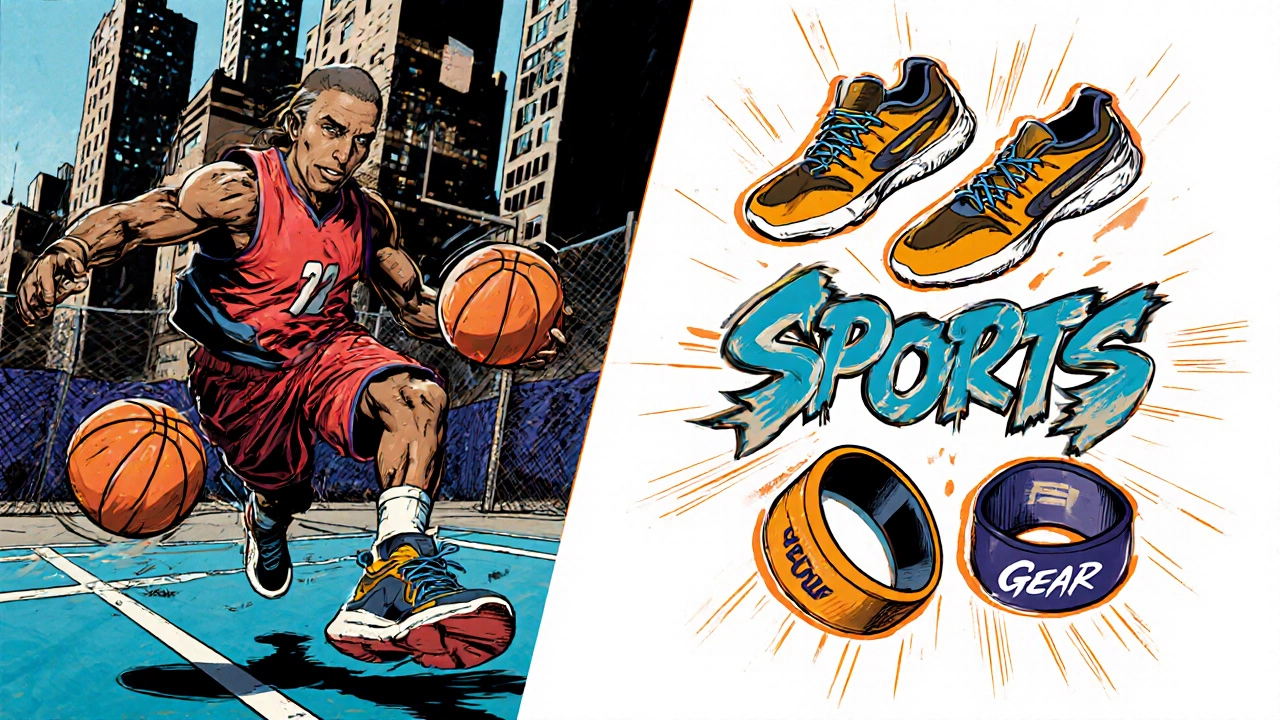
When the Terms Don’t Overlap
Not all synonyms are equal. Here’s where confusion happens:
- Apparel (shirts, shorts, socks) is often grouped with equipment, but technically, it’s separate. A jersey doesn’t help you hit a ball-it just covers you. Still, most stores sell them together.
- Protective gear (helmets, mouthguards, shin guards) is a subset of sports equipment. You wouldn’t call a yoga mat “protective gear,” even though it’s equipment.
- Accessories like sweatbands, towels, or water bottles are sometimes included, sometimes not. It depends on who’s defining the term.
For example, if you’re buying a new pair of running shoes, you’re buying sports equipment. But if you’re buying a fitness tracker to monitor your heart rate during the run, that’s fitness equipment-or maybe even a wearable tech device. The line blurs, especially with smart gear.
What Do Experts and Brands Say?
Major brands like Nike, Adidas, and Decathlon use “athletic gear” and “sports gear” interchangeably on their websites. But if you look at their product categories, you’ll see:
- “Running Gear” = shoes, socks, shorts, hydration belts
- “Training Equipment” = weights, mats, resistance tools
- “Team Sports Equipment” = balls, nets, goals, protective pads
Even big retailers like Amazon break it down this way. Search “sports equipment” and you’ll get a mix of everything. Search “fitness equipment” and you’ll mostly see machines and weights.
In professional sports, the term “equipment” is strictly used for gear mandated by rules. For example, in the NFL, the league has a list of approved helmets, shoulder pads, and cleats. That’s official sports equipment. Everything else is just gear.
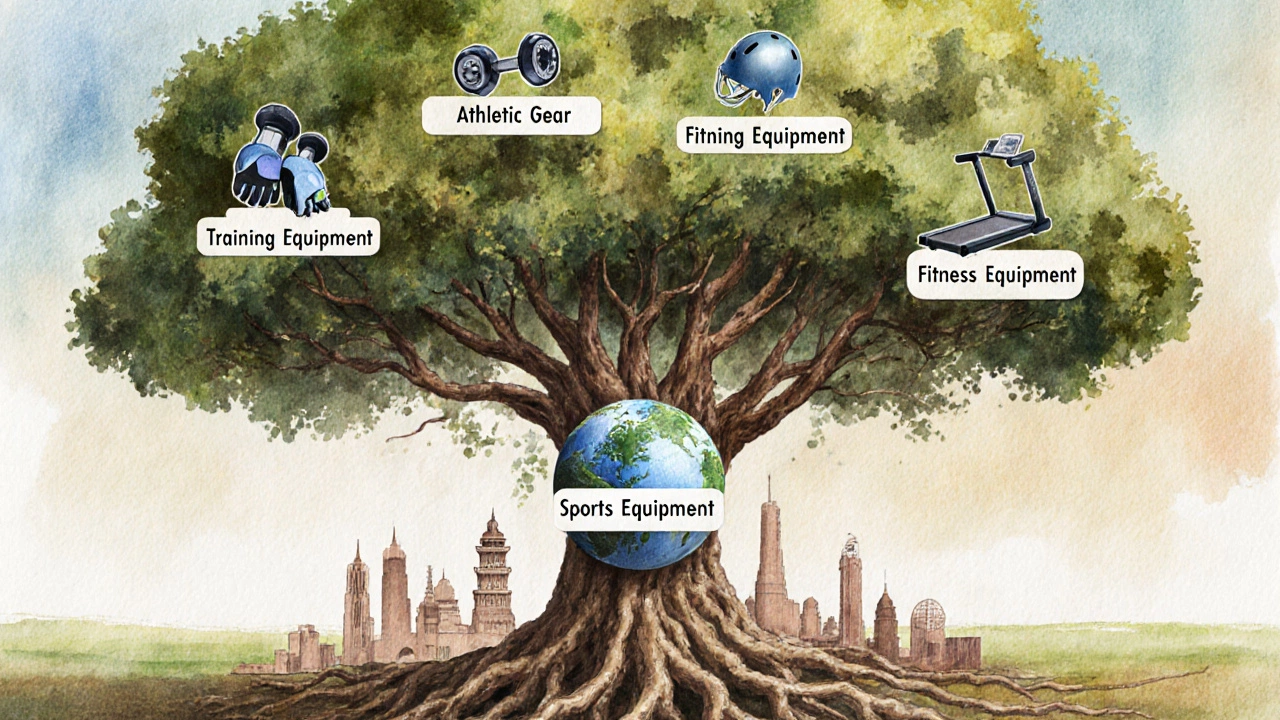
What Should You Call It?
Here’s the simple rule: use the term that fits your context.
- Shopping online? Use “sports gear” or “athletic gear.” They’re the most searched terms.
- Buying for a team? Say “team equipment” or “sports equipment.”
- Working out at home? “Training equipment” or “fitness equipment” is clearer.
- Talking to a coach? Stick with “sports equipment.” It’s the formal term they’ll recognize.
In Bengaluru, where I’m from, most people just say “kit.” “Did you bring your cricket kit?” “My football kit is at the shop.” It’s local, efficient, and everyone gets it. You don’t need fancy words when the context is clear.
Real-World Example: Buying a Basketball Set
Let’s say you want to buy a basketball, hoop, and pump for your driveway. You go online and type:
- “Basketball sports equipment” → 12,000 results
- “Basketball gear” → 8,500 results
- “Basketball training equipment” → 2,100 results (too narrow)
- “Basketball fitness equipment” → 400 results (wrong category)
“Sports equipment” and “gear” are the winners. But if you’re buying just the ball, you might search “basketball for outdoor use.” The term you use changes based on what you’re looking for.
Final Takeaway
There’s no single right word for sports equipment. But knowing the differences helps you find what you need faster, talk more clearly with coaches or store staff, and avoid buying the wrong thing.
Think of it like this: “sports equipment” is the umbrella. “Athletic gear,” “sports gear,” and “training equipment” are the branches. Pick the branch that matches your situation. And if you’re in a local market in India, just ask for your “kit.” Everyone will know what you mean.
Is athletic gear the same as sports equipment?
Yes, for most practical purposes. Athletic gear is just a more casual, commonly used synonym. Both refer to the tools and clothing used in sports. The difference is mostly in tone-"athletic gear" is what you see on store shelves, while "sports equipment" is used in official or technical contexts.
Can fitness equipment be called sports equipment?
Sometimes, but not always. Fitness equipment like treadmills, dumbbells, and resistance bands are designed for general conditioning, not for playing a specific sport. So while they’re a type of sports equipment in the broadest sense, most people keep them in separate categories. If you’re training for a sport, your weights count as training equipment, not game equipment.
What’s the difference between sports gear and sports equipment?
There’s almost no difference in meaning. "Gear" is more conversational and often includes clothing, while "equipment" sounds more technical and focuses on tools. In practice, people use them interchangeably. A coach might say, "Bring your sports gear," meaning your uniform, shoes, and ball-all of it.
Is a water bottle considered sports equipment?
Technically, yes-if it’s used during physical activity. But most people don’t list it under equipment. It’s usually grouped with accessories. In official terms, it’s part of your sports kit. For example, the NBA requires teams to provide water bottles for players, so it’s considered essential equipment in that context.
Why do some people say "kit" instead of equipment?
"Kit" is a British and Commonwealth term, widely used in India, Australia, and the UK. It’s short, simple, and implies everything you need in one package. A cricket kit includes bat, ball, pads, gloves, and helmet-all in a bag. It’s practical language for people who don’t need technical terms.
